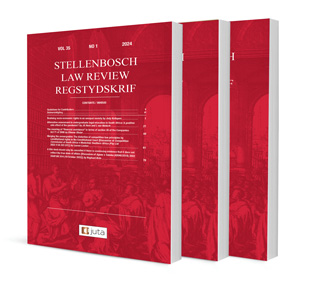Aiding and abetting, and bringing about a pattern of criminal gang activity under the Prevention of Organised Crime Act

ARTICLE
Aiding and abetting, and bringing about a pattern of criminal gang activity under the Prevention of Organised Crime Act
Author: D C van der Linde
ISSN: 1996-2177
Affiliations: Associate Professor, Stellenbosch University
Source: South African Law Journal, Volume 142 Issue 1, p. 151-174
https://doi.org/10.47348/SALJ/v142/i1a9
Abstract
The Prevention of Organised Crime Act 121 of 1998 (‘POCA’) introduced six new offences aimed at combating criminal gang activities around the country, and especially in the Cape Flats area in Cape Town. Despite the state’s ambitious efforts to criminalise certain conduct associated with criminal gang activities, only two offences under POCA have been commonly employed against those who have committed gang-related offences, namely aiding and abetting a criminal gang under s 9(1)(a) and bringing about a pattern of criminal gang activity under s 9(2)(a), respectively. The legal framework has also raised several interpretative complexities that have led to legal uncertainty. This article examines and deconstructs the offences contained in POCA, in light of established common-law principles and significant judgments dealing with the provisions, in an attempt to clarify some of the ambiguity. Finally, the article makes suggestions for legislative intervention.

